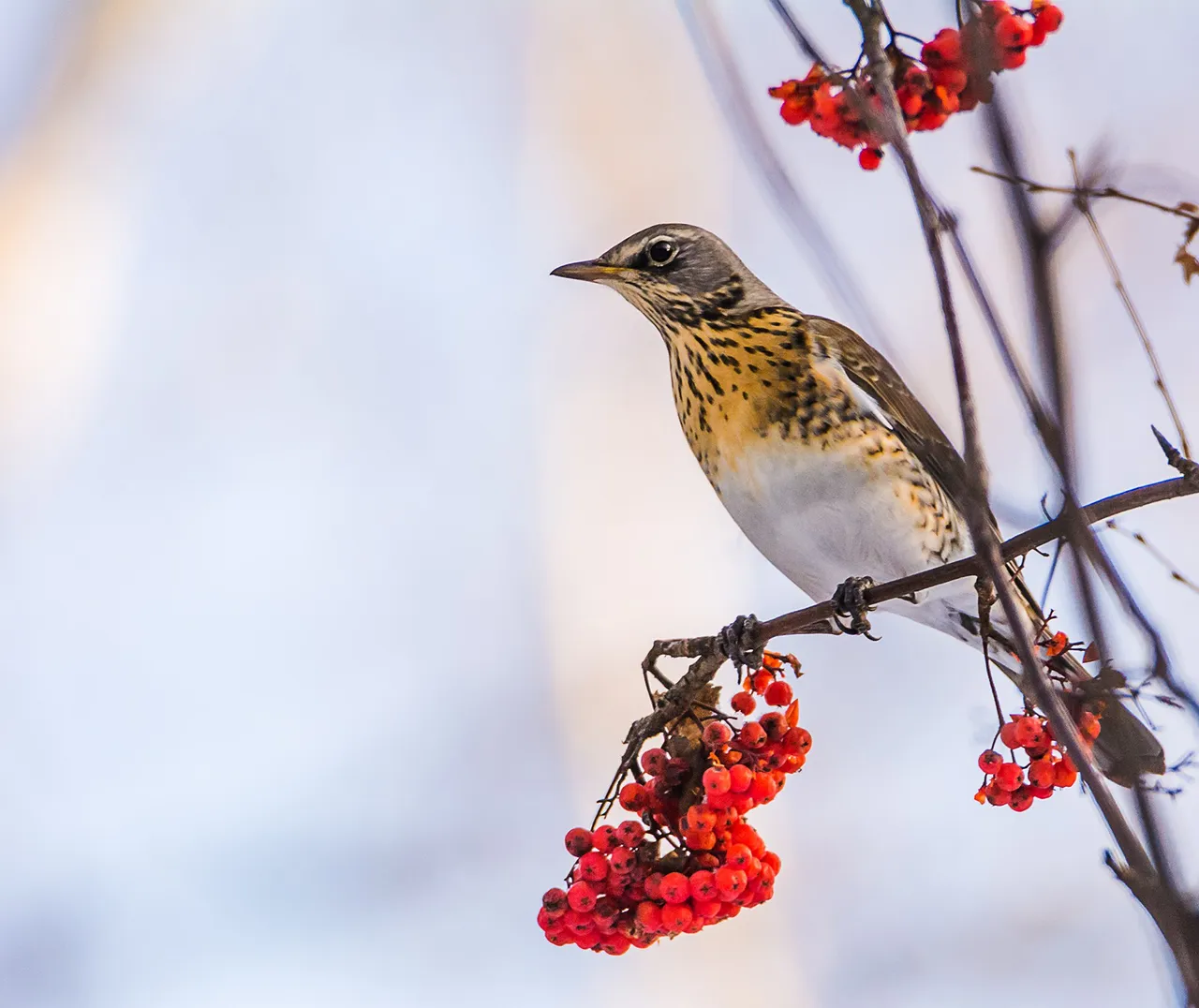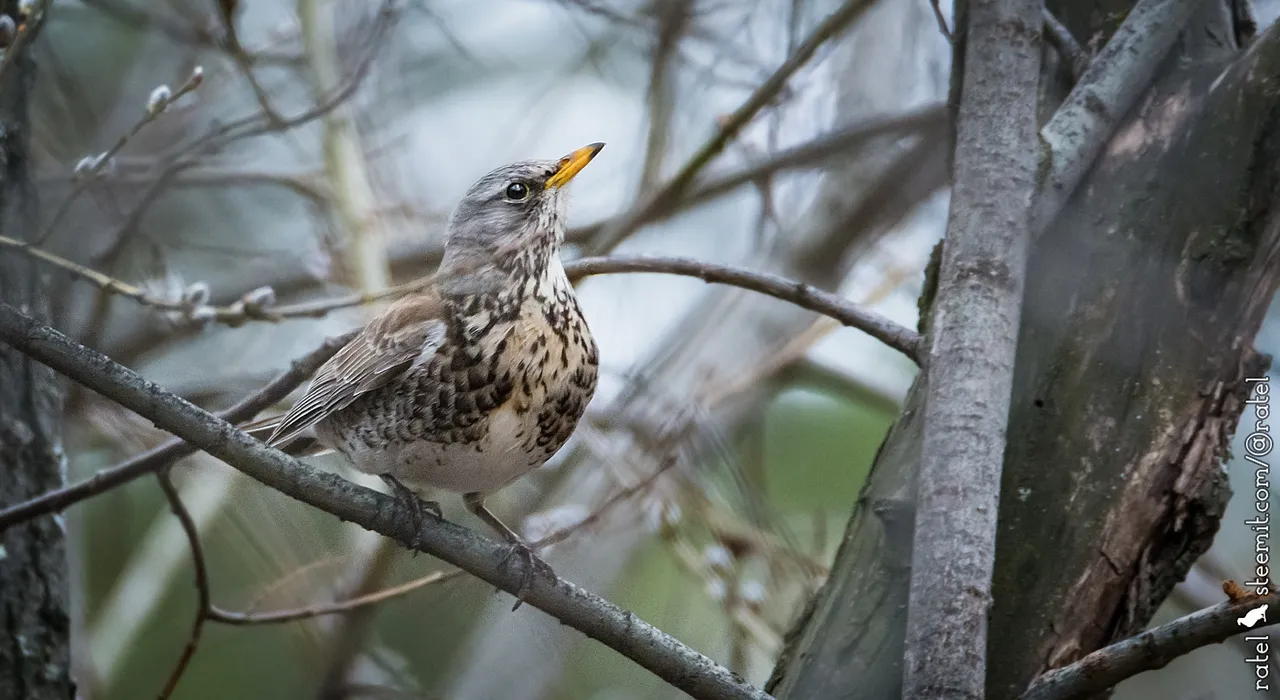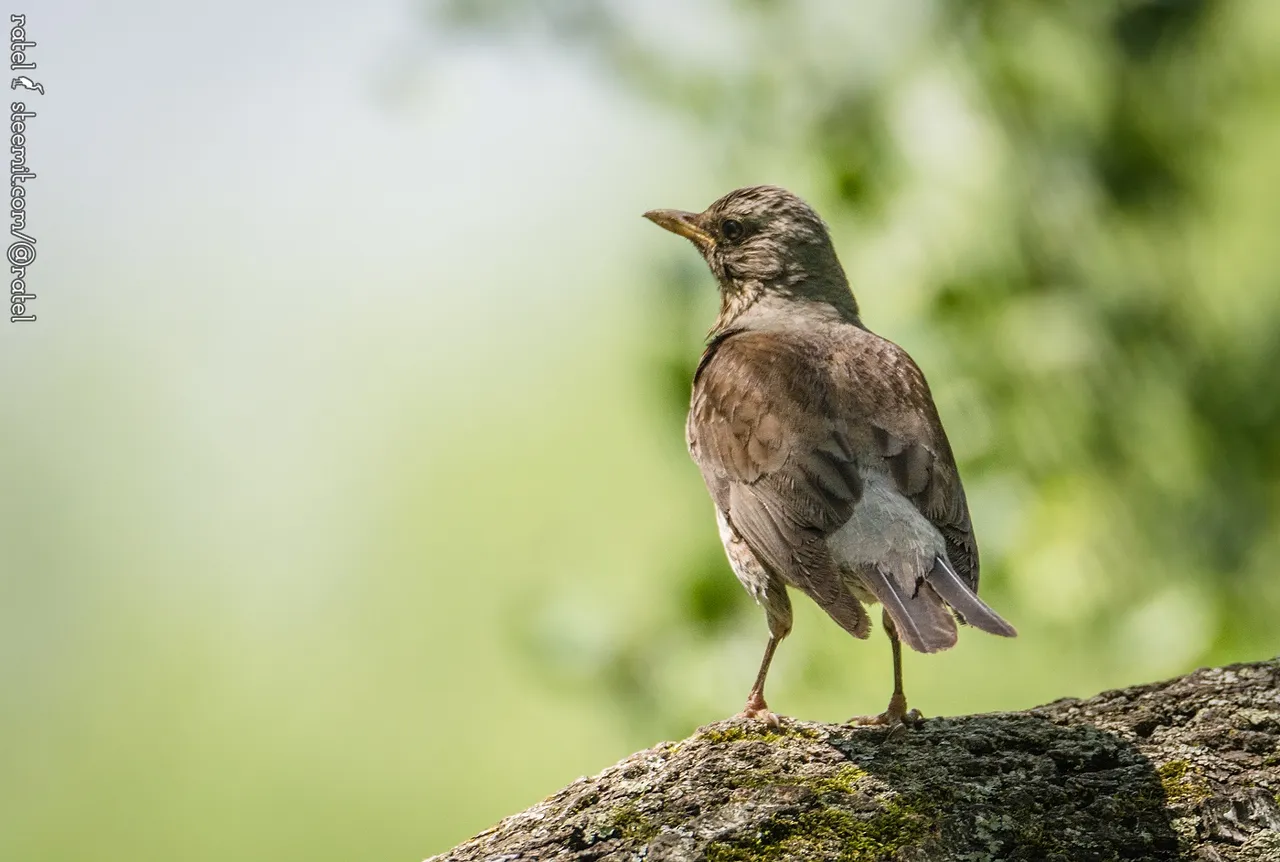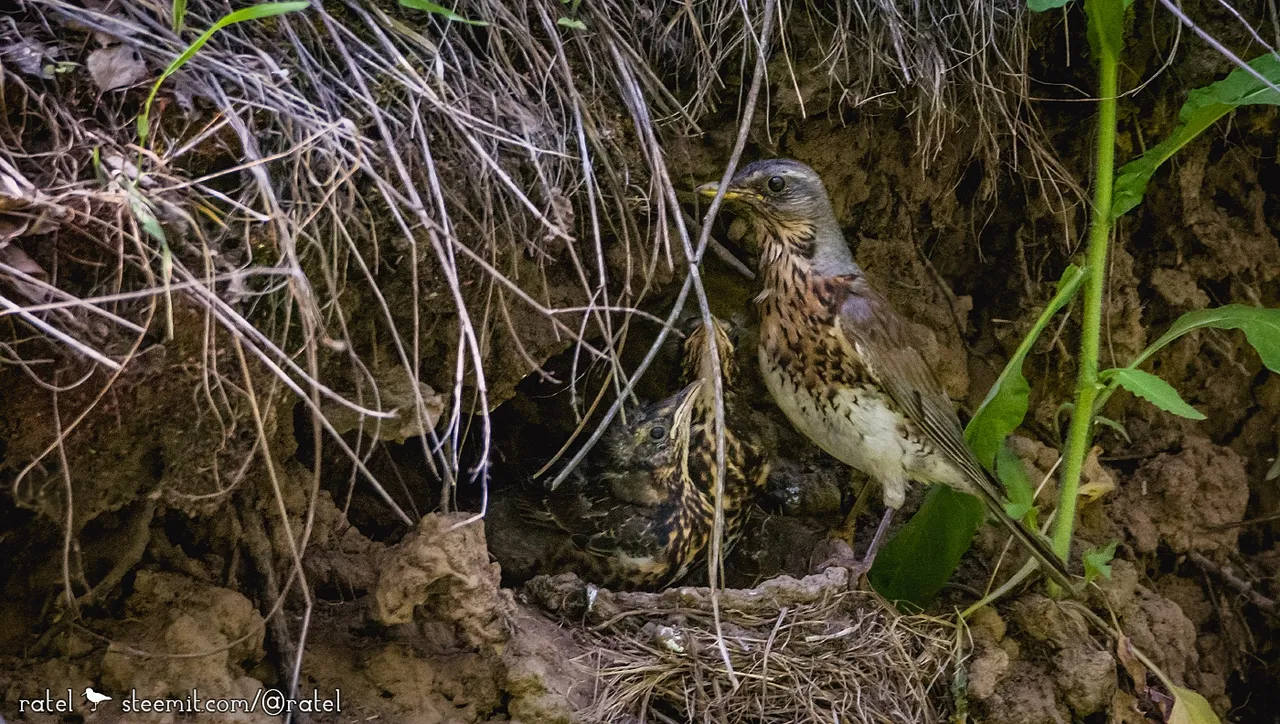
🦉 The fieldfare (Turdus pilaris)
📚 Turdus (lat) - Thrush
📚 pilaris the etymology is mysterious, although it is now believed that pilaris in later Latin means simply thrush (Jobling, 2017). However, since lat. "pilus" hair, pilare to remove hair, but pila ball, pilaris anything related to ball, and pilarius is a juggler (and at the same time, the Greek "trikhos" is hair, and "trikhas" is a thrush!), all this puzzling. Two assumptions arise. First: when the fieldfare in summer, how usually pulls earthworms out of the ground, this can be associated with hair removal (pilare). Second: when in autumn and winter the fieldberry picks rowan berries and throws them up, swallows, it may resemble a juggler (pilarius).

In the first photo you see a typical picture in autumn and winter. These thrushes fly into rowan bushes and eat berries. For this, in some countries this bird is called as "rowaner".
In other seasons, they walk the earth in search of their favorite food - earthworms.

With the advent of spring, these birds change their behavior very much. They become fearless, and it is easiest to approach them at this time. But only if they are alone. If you enter the territory where they have a nest, you will be attacked by them. They will dive aggressively and bombard you with their droppings.

| Camera | Lens |
|---|---|
| Nikon D5200 | Tamron SP AF 150-600mm f/5-6.3 Di VC USD |
